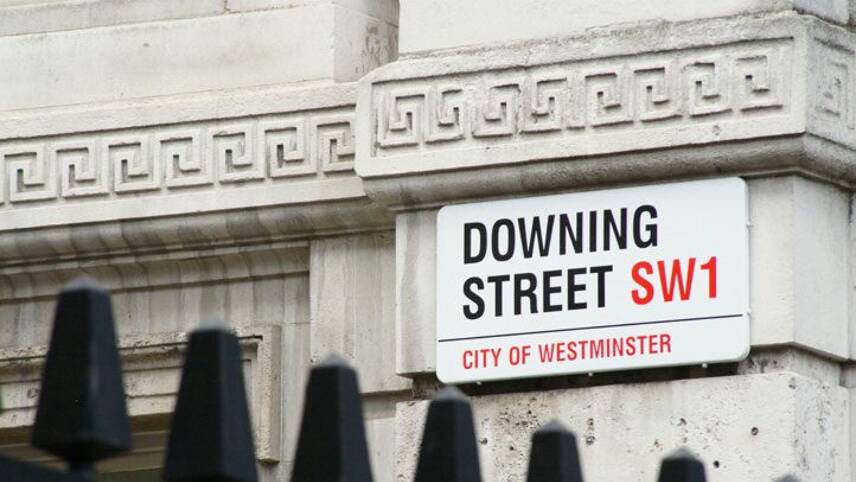Register for free and continue reading
Join our growing army of changemakers and get unlimited access to our premium content

The Champions will focus on areas highlighted by the CCC
Convened by the Conservative Environment Network (CEN), the new Net Zero Champions initiative is designed to help MPs within the party deliver unified calls to action on sector-specific net-zero policies. The UK Government is in the process of developing a net-zero roadmap and is aiming to publish this ahead of COP26, but MPs serving as Champions want stronger and more joined-up policies to be included.
Champions have been allocated to promote policy changes across seven areas where progress has either been slow to date or will need to be significantly sped up in the coming decades. The topics are sustainable agriculture; active travel; public transport; electric vehicles (EVs); nature-based solutions; renewables and green homes. Each topic has at least two Champions, with 25 Champions taking part altogether.
All policy recommendations will have been developed with the Conservative Party’s overarching commitment to “levelling up” all regional economies in mind, the CEN has claimed.
The CEN said in a statement that it has developed the Champions initiative in recognition of the Climate Change Committee’s (CCC) latest progress report to Parliament, which warned that challenges delivering a joined-up approach to the low-carbon transition are resulting in several key policy gaps. Since the report was published, the Government has received similar warnings from the likes of the Aldersgate Group and the Environmental Audit Committee (EAC).
CEN director Sam Hall said that while the UK “has the best record on clean growth among large economies”, there is “so much more to do in the fight against climate change, particularly in this critical year of COP26 in Glasgow”.
The launch of the Net-Zero Champions initiative comes in the same week that BEIS Secretary Kwasi Kwarteng, in a discussion with the Institute for Government, admitted that the UK needs a stronger and more joined-up policy framework to deliver its net-zero target. Specifically, he claimed that decisions such as not blocking a new coal mine in Cumbria “send mixed messages”.
UK policy snapshot: Where are we now on the Champions’ key issues?
Against the backdrop of Covid-19, policy has been changing very rapidly in some areas, while key decisions in others have been shelved.
On agriculture, the Agriculture Bill is progressing to the expected timeline. It includes measures that will see farmers and land managers rewarded financially for work to improve air and water quality; boost soil health; implement flood mitigation and adaptation measures; improve access to the countryside or bolster animal welfare. But MPs outside of the Conservative Party have repeatedly criticised the Party’s votes against stronger mandatory standards on these topics. The Trade Bill has also faced similar scrutiny in recent weeks.
As for active travel and public transport, the Ten-Point Plan earmarked £5bn for walking, cycling and low-emission and zero-emission buses. MPs on the Environment, Food and Rural Affairs (EFRA) Select Committee want this initial funding to be followed by a public communications campaign encouraging modal shift, after many people reverted to individual car use in line with lockdown guidance.
On EVs, the Conservative Party has been keen to be seen to take a leadership role. The 2020 Budget confirmed a new ambition for all EV drivers to always be within a 30-mile radius of a rapid charging point and allocated multi-million-pound pots to charging infrastructure and scrappage schemes. This was built upon in late 2020, when Johnson moved the UK’s ban on new petrol and diesel car sales forward to 2030. MPs including the Champions are asking for better support for the infrastructure needed to charge these vehicles, and better support for the skills and training needed to manufacture them. These concerns are shared by many of the largest carmakers.
Nature-based solutions have been steadily climbing up the agenda after former Chancellor Philip Hammond kick-started a review into the economic value of biodiversity under Theresa May. The results of the review have informed the major Dasgupta Review, which some say could be as significant as the Stern review on climate change. Nonetheless, the Government has faced accusations of failing to scale funding for nature-based solutions and of failing to prevent degradation within habitats marked as protected.
Renewable energy has also been a major focus for both May and Johnson’s governments. Johnson’s major commitment in this space is for the UK to host 40GW of offshore wind by 2030. Offshore wind is the only renewable energy sector with a Sector Deal, designed to scale up government and private-sector finance to meet this goal. But other forms of generation are getting more support now, after the Government U-turned on a decision to exclude sectors like onshore wind from the Contracts for Difference (CFD) auctions.
The last topic covered by CEN’s new Champions is green homes. The CCC has repeatedly told the Government to beef up its plans for decarbonising homes, as they are a major source of emissions and energy demand. Moreover, most do not meet the energy efficiency standards recommended. The Government’s response has been the creation of the Future Homes Standard. Some groups had been hoping for even more stringent requirements but, in its current form, the Standard requires all new homes to be “zero-carbon ready”. It will come into force from 2025.
In the shorter-term, however, the Government is taking heavy criticism for its decision to withdraw most of the £2bn initially promised for the Green Homes Grant. The scheme is designed to help households cover the cost of retrofitting technologies that improve energy efficiency.
Sarah George


My self-funding low carbon plan has been sent to every Prime Minister since 1985 without a result. These Conservative MPs have an uphill struggle with a Prime Minister who took 1 million from climate deniers at the last General Election.